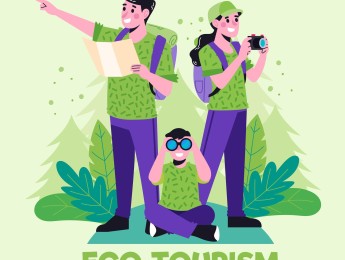As global awareness of environmental and social responsibility grows, the hospitality industry must evolve toward more sustainable practices. This course provides a comprehensive understanding of how sustainability can be integrated into hospitality operations, design, and leadership. It goes beyond environmental checklists to address long-term value creation, stakeholder engagement, and operational transformation.
Participants will explore frameworks, tools, and real-world examples that illustrate how sustainable hospitality can reduce costs, enhance brand reputation, and deliver meaningful guest experiences. The course covers environmental responsibility, ethical sourcing, waste reduction, green certifications, and how to involve staff and guests in sustainability efforts. It prepares professionals to lead change and build resilient, future-ready hospitality businesses.
By the end of this course, participants will be able to:
- Understand sustainability principles within hospitality environments.
- Evaluate current practices and identify areas for improvement.
- Design and implement sustainability strategies across departments.
- Monitor and reduce energy, water, and waste impacts.
- Lead green initiatives and staff engagement campaigns.
- Align operations with global sustainability standards and certifications.
- Communicate sustainability efforts to guests and stakeholders effectively.
- Build long-term value while minimizing environmental footprint.
This course is ideal for:
- Hotel and resort managers.
- Sustainability officers and environmental coordinators.
- Hospitality operations and facility managers.
- Executive chefs and F&B managers.
- Marketing and brand teams in hospitality.
- Hospitality consultants and auditors.
- Owners and investors in eco-tourism and lodging.
The course uses an applied and interactive methodology focused on real-life case studies, group workshops, and scenario-based learning. Participants will engage in sustainability audits, impact assessments, and strategic planning exercises tailored to the hospitality industry. Discussions, tools, and templates are designed for immediate implementation in hotels, resorts, or hospitality businesses of any scale.
Day 5 of each course is reserved for a Q&A session, which may occur off-site. For 10-day courses, this also applies to day 10
Section 1: Foundations of Sustainable Hospitality
- What is sustainability in hospitality? Core definitions and goals
- Global environmental and social trends influencing the sector
- Triple Bottom Line: People, Planet, Profit in hospitality
- Understanding climate risks and responsibilities in lodging
- Hospitality sustainability benchmarks and frameworks (UNWTO, GSTC)
- Building a business case for sustainability
- The connection between sustainability and guest satisfaction
Section 2: Energy, Water, and Waste Management
- Conducting energy and water audits in hospitality facilities
- Smart systems for monitoring usage and improving efficiency
- Designing low-impact guest experiences: linen reuse, smart lighting, low-flow systems
- Reducing food waste and plastic use across operations
- Strategies for sustainable laundry, HVAC, and housekeeping
- On-site waste sorting, composting, and recycling practices
- Measuring, reporting, and setting reduction targets
Section 3: Sustainable Procurement and Ethical Sourcing
- Defining sustainable and ethical supply chains
- Choosing eco-friendly suppliers and certified products
- Supporting local communities and sourcing local ingredients
- Green practices in purchasing furniture, uniforms, and amenities
- Ethical labor standards and human rights in sourcing
- Collaborating with vendors for shared sustainability goals
- Implementing traceability and sustainability policies
Section 4: Green Certifications and Compliance
- Overview of major green certifications (LEED, EarthCheck, Green Key, ISO 14001)
- Steps to prepare for sustainability audits and assessments
- Legal and environmental regulations affecting hospitality
- Reporting practices and ESG (Environmental, Social, Governance) standards
- Building internal compliance teams
- Benefits and limitations of certifications
- Showcasing green credentials in marketing and PR
Section 5: Engaging Staff, Guests, and Communities
- Creating a sustainability culture within teams
- Training staff on daily sustainable practices
- Involving guests in energy and waste reduction campaigns
- Designing educational guest materials and digital engagement tools
- Community outreach and environmental volunteering programs
- Partnering with local NGOs and conservation initiatives
- Measuring social impact and building guest loyalty through values
Upon successful completion of this training course, delegates will be awarded a Holistique Training Certificate of Completion. For those who attend and complete the online training course, a Holistique Training e-Certificate will be provided.
Holistique Training Certificates are accredited by the British Accreditation Council (BAC) and The CPD Certification Service (CPD), and are certified under ISO 9001, ISO 21001, and ISO 29993 standards.
CPD credits for this course are granted by our Certificates and will be reflected on the Holistique Training Certificate of Completion. In accordance with the standards of The CPD Certification Service, one CPD credit is awarded per hour of course attendance. A maximum of 50 CPD credits can be claimed for any single course we currently offer.
- Course Code IND15 - 137
- Course Format Classroom, Online,
- Duration 5 days









